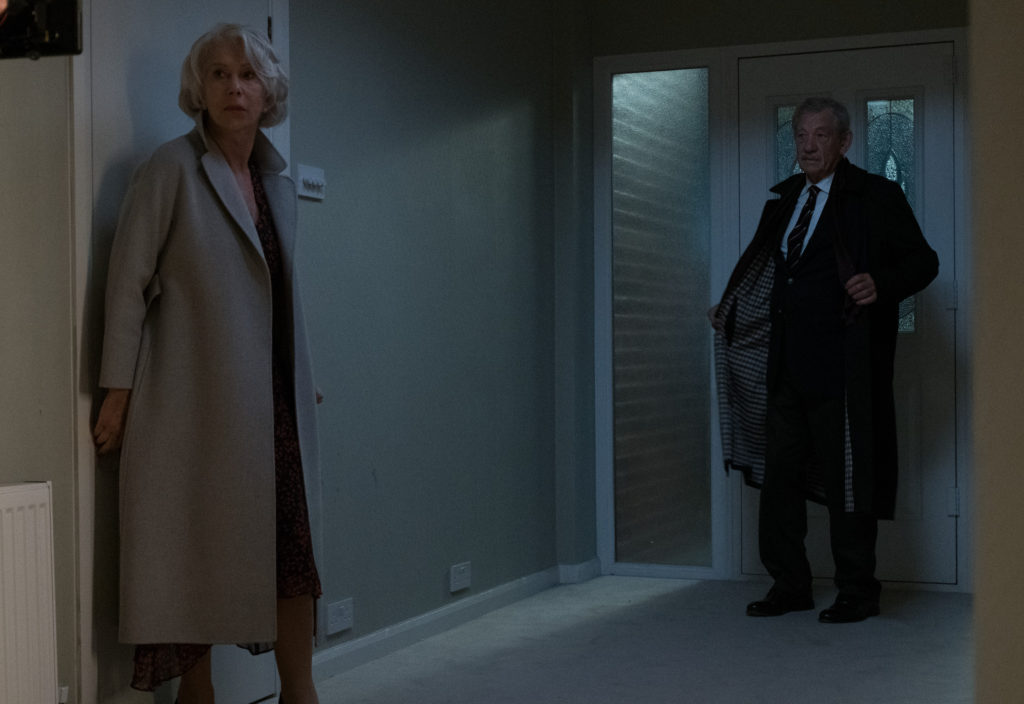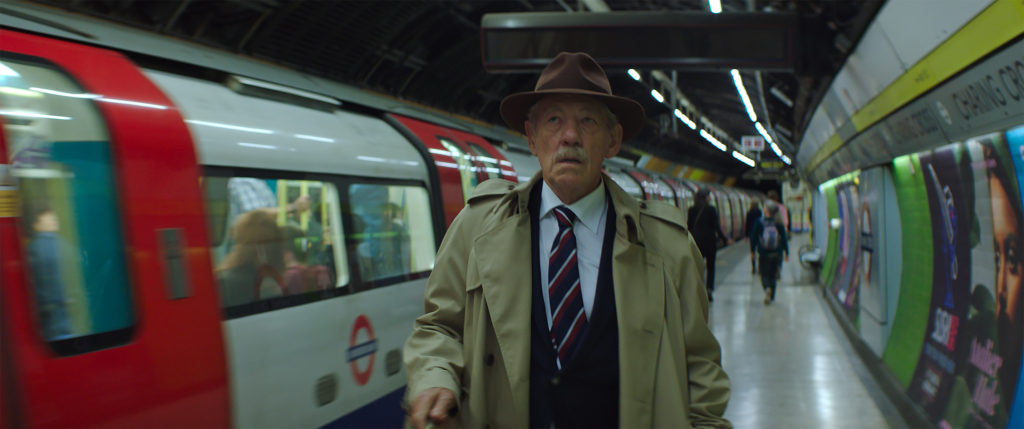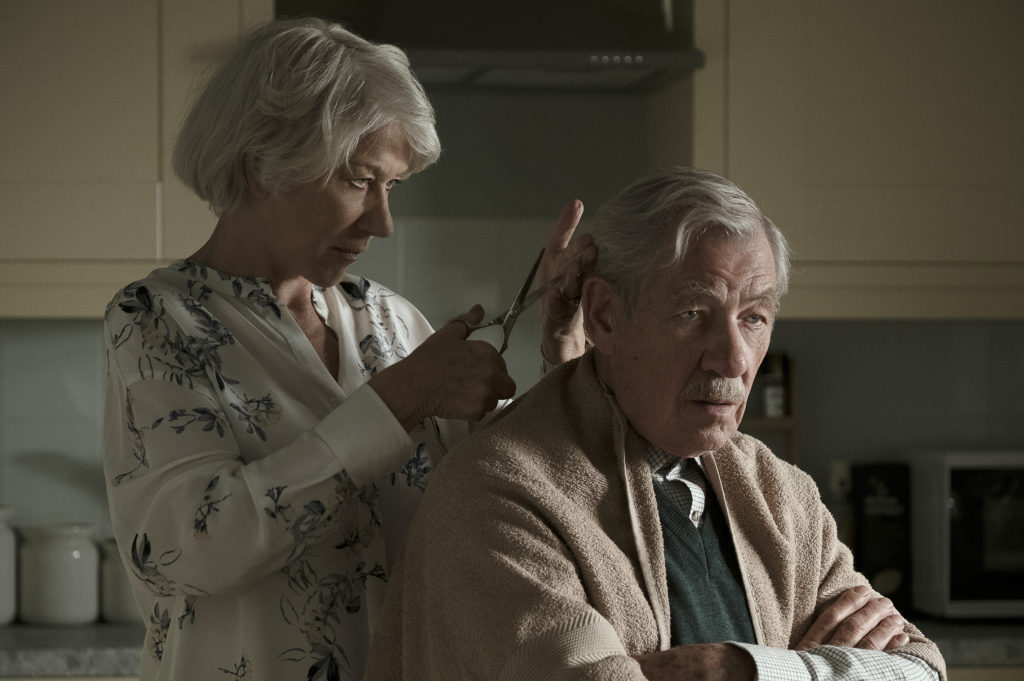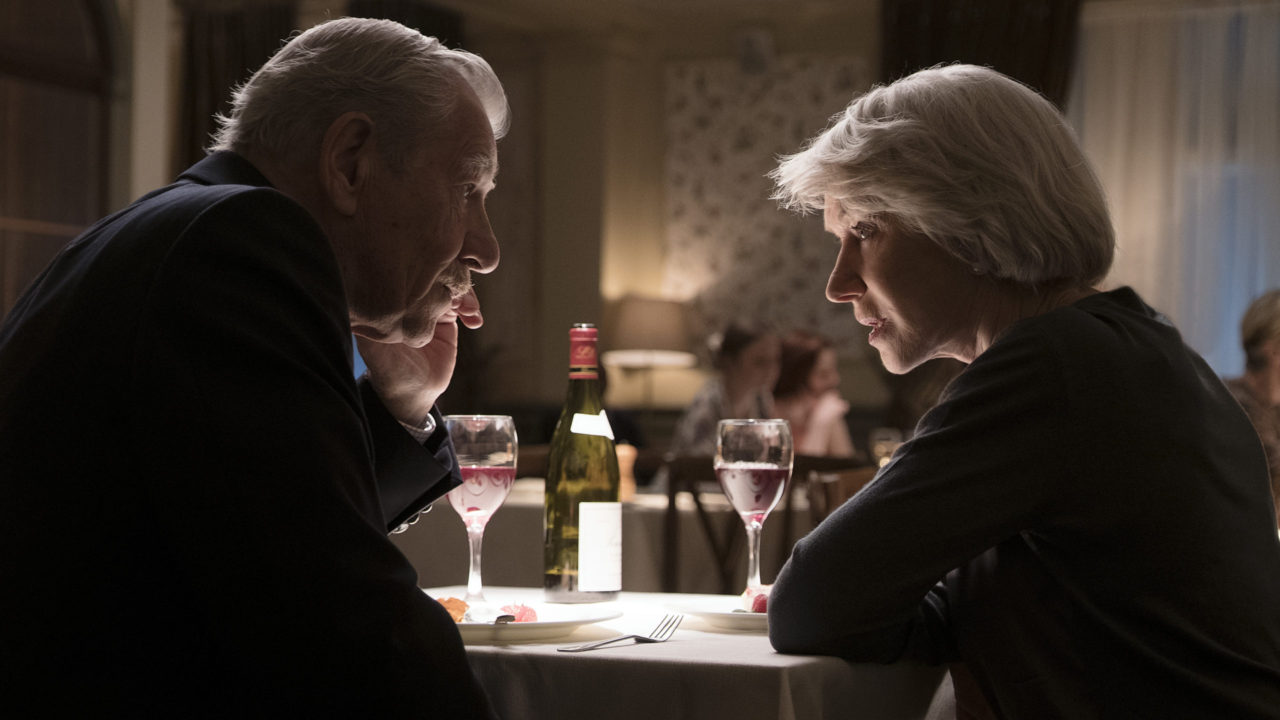The Good Liar opens with both Helen Mirren’s Betty and Iain McKellen’s Roy in front of their computers. The scene cross-cuts between their online interactions on a dating website, drawing in close on specific points of their conversation where they they casually fib about who they are. Roy tells her that he doesn’t smoke while puffing away on a cigarette. Betty says she doesn’t drink while glugging a glass of wine. They agree to meet – as the kids would say, IRL – and while Betty is cautious at first, Roy is witty and charming, and the both of them quickly hit it off.
We know from their brief exchange that the both of them are, in fact, liars. But what do their little white lies mean with regards to who they actually are as people? There are big questions here. Do the ends justify the means? What is a good lie? What makes a good liar? Which one of them is the good liar? (The “good” here working interchangeably as both a qualitative statement and a moral one.) This is what we’re hoping to discover over the course of the next one hundred or so minutes. It’s a thrilling prospect, made more so by the fact that we get to see it played out by two actors at the top of their game.
Bill Condon has a wonderfully varied oeuvre. He’s directed a low-rent sequel to Candyman. He’s had career highs with Gods and Monsters, Mr. Holmes, the last two Twilight movies, and Beauty and the Beast. He’s even written the musicals Chicago, Dreamgirls, and The Greatest Showman. And while this displays an incredible artistic range, what it also means is that Condon isn’t a director who is known for a distinctive visual or narrative style. You’re never quite sure what you’re going to get with one of his movies.

When you enter a screening of a movie called The Good Liar, you walk in with certain expectations. Maybe it’s a caper of some sort. Maybe it’s a Hitchcockian game of cat and mouse. Personally, I was hoping for something along the lines of a Patricia Highsmith novel. A Ripleyesque tale featuring characters who are beyond redemption, and yet charming, intelligent, and insidiously appealing. This movie is none of those things. There are moments, however, when it tries very hard to be.
Their lunch date, you see, sets us up for a very different movie than the one we actually get. The dynamic between our two leads in that brief moment in a quiet London pub was the movie I had playing in my head. That was the movie I wanted to see. What I got instead was something overwritten, structurally lopsided, and utterly discordant.
There are so many shifts in tone that each act feels like it belongs in a different movie. There’s a playfulness in the opening act that is completely ignored by the time we get to the second. There are moments of staggering violence that come out of nowhere. There is a darkness in the final minutes of the movie that only feels appropriate because, by this point in the proceedings, you’ve become used to things not making sense anymore.

The screenplay is excruciatingly dull, with every big revelation feeling like such a contrivance that I kept waiting for someone to yell “Surprise!”. Helen Mirren and Ian McKellen are magnificent in their interactions with one another, but any subtlety they manage to eke out from the script is undermined by large blocks of thudding exposition in which the both of them take turns sitting in chairs while explaining the movie.
Show me! Show me, don’t tell me.
Every misdirection in the movie is so clearly signposted that it feels like a game of Mad Libs. So much so that you could pick a plot twist out of a hat full of plot twists, insert it into this movie, and not have to change anything else that happens before or after.
The biggest problem with The Good Liar, however, is a structural one. Because we spend so much time with Roy, discovering who he is and what his motivations are, all the big revelations involving Betty feels completely unearned. This is particularly disappointing because it feels like such a waste of Helen Mirren who, bless her, tries to act her way out of some truly terrible storytelling.

If there is one thing this movie made me realize, it’s that I could watch an entire season of Helen Mirren and Ian McKellen playing house. The series would be called At Home with the Royals and, over 22 episodes, we would see the both of them potter about their day. Cooking. Cleaning. Doing the dishes. Shopping for supplies at Waitrose (they’re royals dammit, they’re too good for Morrisons). One hour at a time. There wouldn’t be any direct to camera confessionals. There wouldn’t be any drama. We’d just immerse ourselves in their mere presence. Getting lost in Helen Mirren’s miraculous manner. Being hypnotized by the creases on Ian McKellen’s face as he maffles about in sotto voce.
Hey Netflix. Call me.
The Good Liar
109 minutes
Director: Bill Condon
Writer: Jeffrey Hatcher
Cast: Helen Mirren, Ian McKellen, Russell Tovey, and Jim Carter









Follow Us